Eid-al-Adha 2021: What food do people eat to celebrate?
The 'festival of sacrifice' begins on Monday 19 July
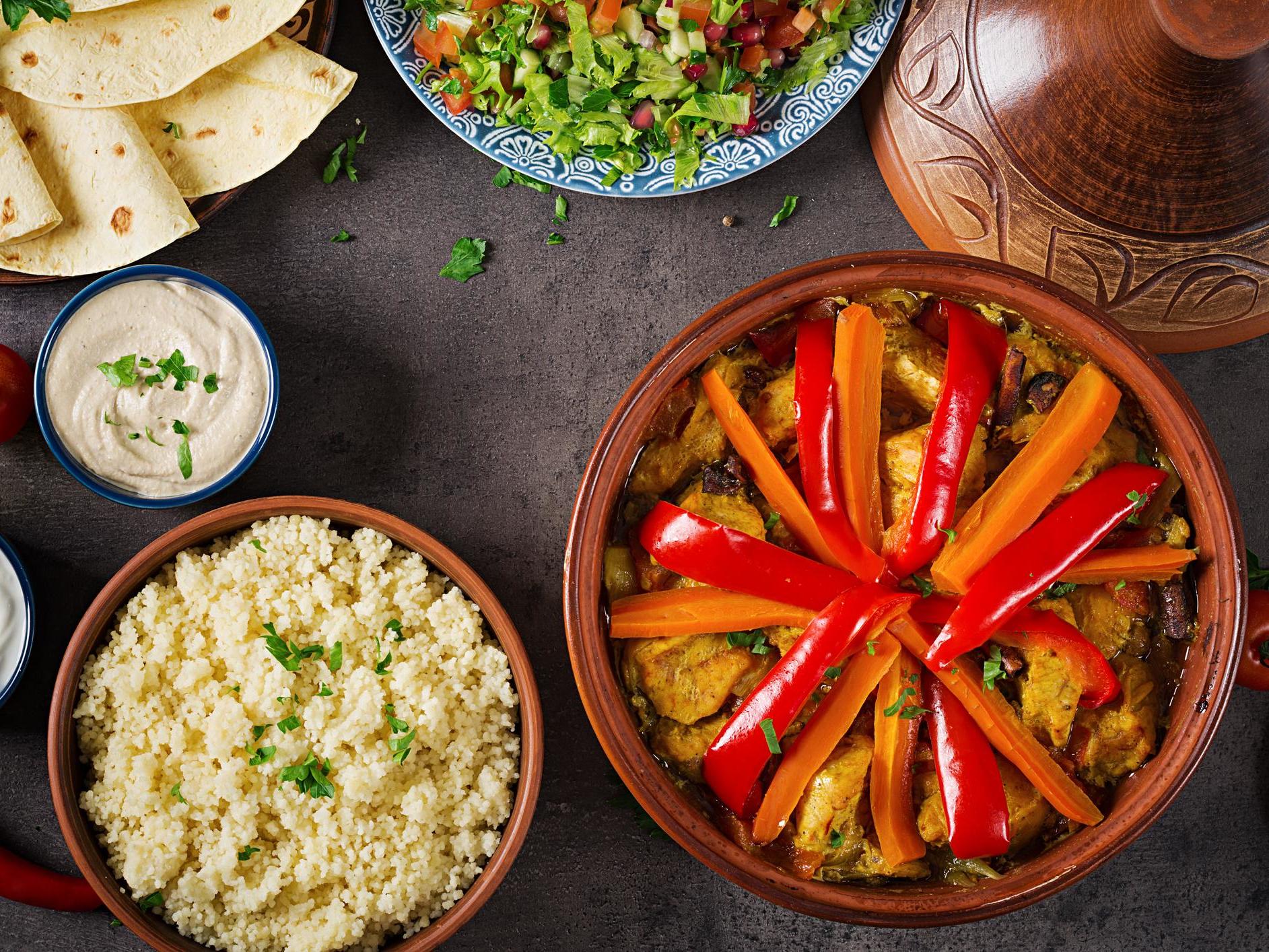
Your support helps us to tell the story
From reproductive rights to climate change to Big Tech, The Independent is on the ground when the story is developing. Whether it's investigating the financials of Elon Musk's pro-Trump PAC or producing our latest documentary, 'The A Word', which shines a light on the American women fighting for reproductive rights, we know how important it is to parse out the facts from the messaging.
At such a critical moment in US history, we need reporters on the ground. Your donation allows us to keep sending journalists to speak to both sides of the story.
The Independent is trusted by Americans across the entire political spectrum. And unlike many other quality news outlets, we choose not to lock Americans out of our reporting and analysis with paywalls. We believe quality journalism should be available to everyone, paid for by those who can afford it.
Your support makes all the difference.This year, Eid-al-Adha begins on the evening of Monday, 19 July and ends on the evening of Friday, 23 July.
The celebration is the second significant religious festival of Islam – the first of the two observances is Eid al-Fitr – and is sometimes called “Salty Eid” because of the amount of savoury foods eaten compared to the predominantly sweet foods consumed as part of Eid-al-Fitr.
Eid-al-Adha requires the sacrifice of an animal for meat, usually sheep, as a commemoration of Ibrahim’s willingness to sacrifice his son in obedience of a command from Allah.
This means that there is a variety of dishes containing lamb and mutton.
Read on for our roundup of the different foods eaten during Eid-al-Adha.
Biryani
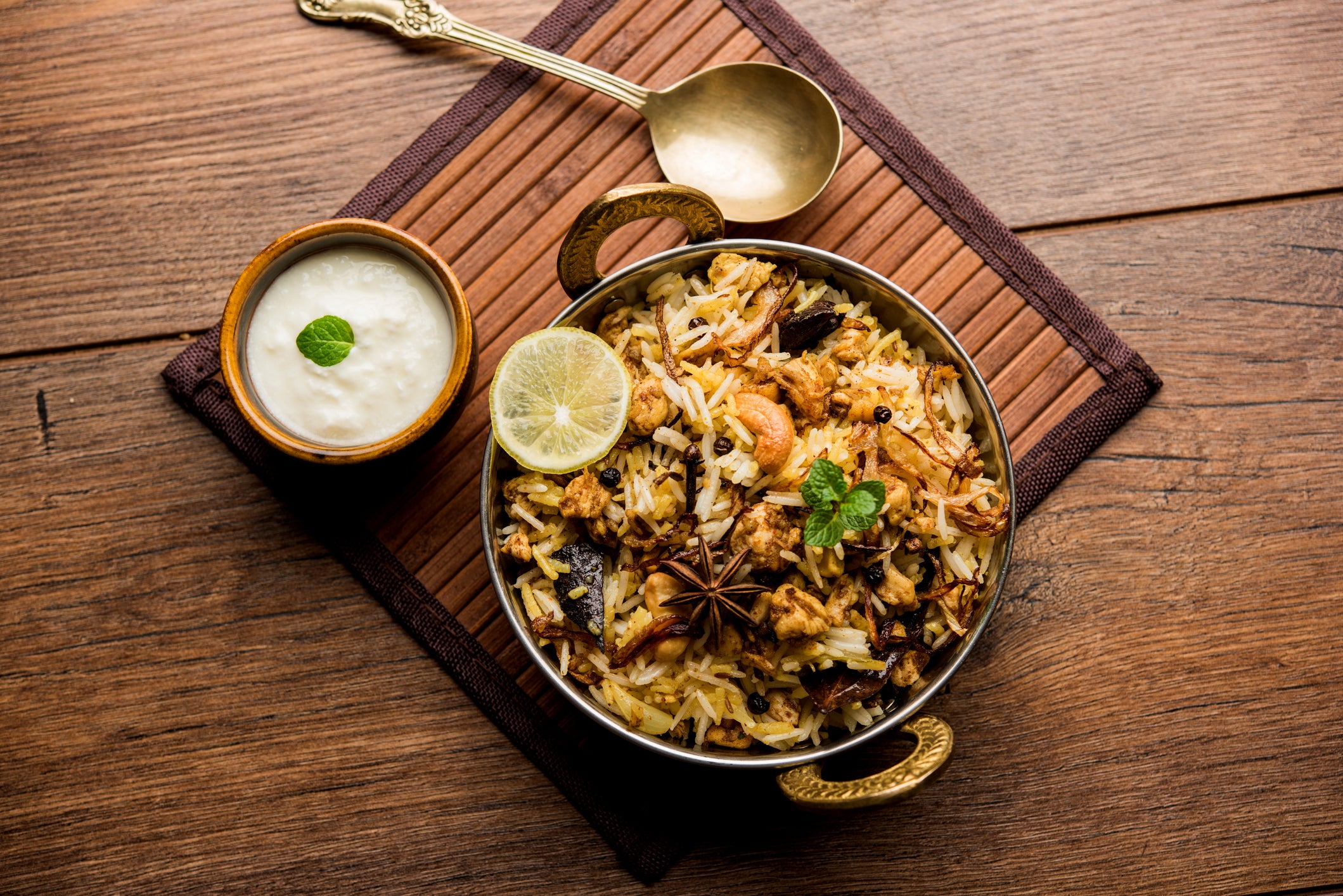
Biriyani is a popular rice dish from South Asia including vegetables, meat (usually mutton), spices and aromatic herbs.
It is usually served alongside stews, tagines and other curries.
Tagine
An Eid-al-Adha feast includes a variety of dishes that can be made vegetarian.
In Morocco, tagine is a popular choice. The dish consists of a savoury stew steamed with vegetables. You can also add poultry, meat or fish to it and it’s often served with couscous.
Korma
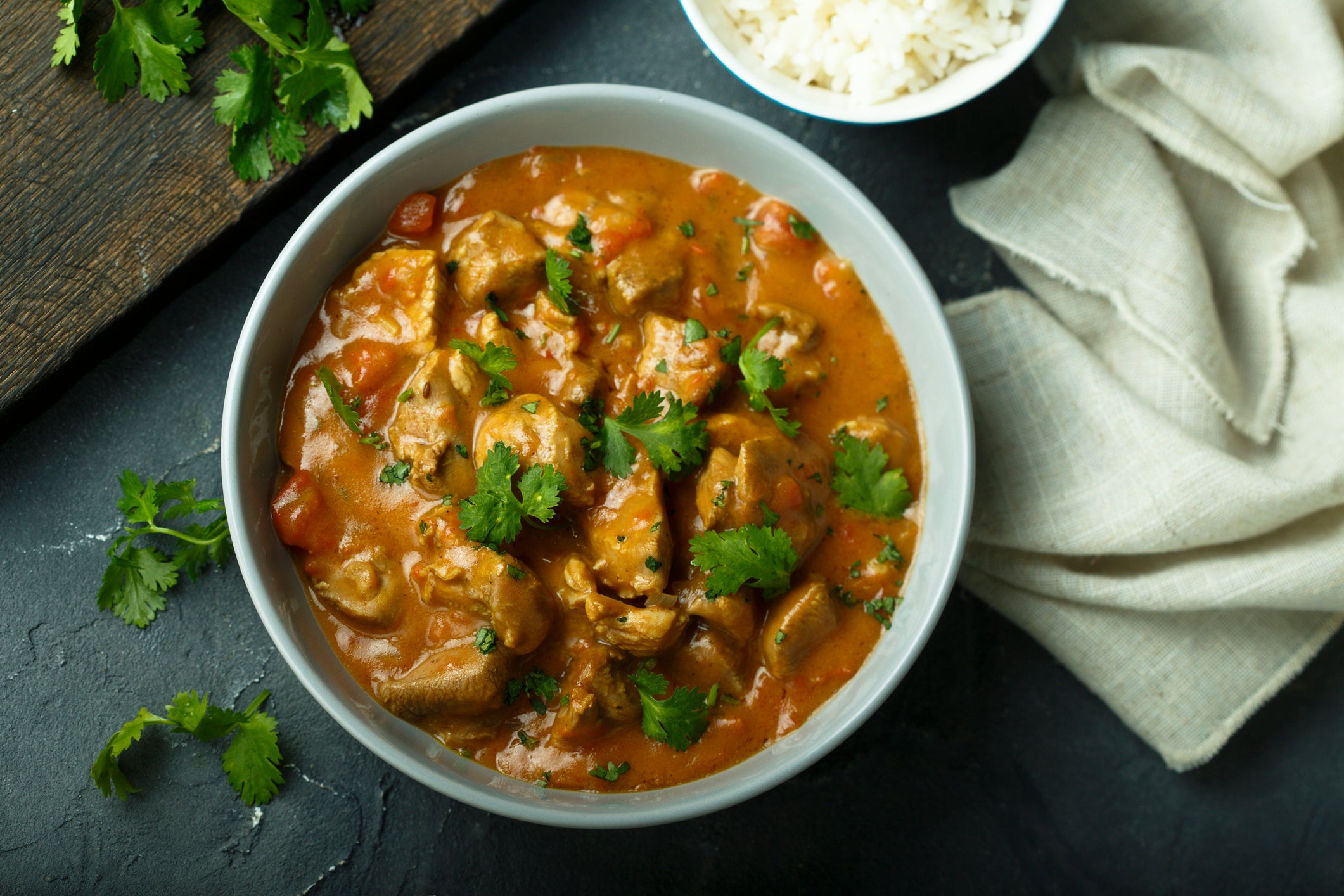
Korma is another dish that can be either vegan-friendly or be made with meat.
It is a curry that is popular in the Indian subcontinent and is made with vegetables or meat that have been braised with cream or yoghurt, water stock and spices to produce a thick sauce.
Like most other curries, korma is typically served with rice.
Maqluba
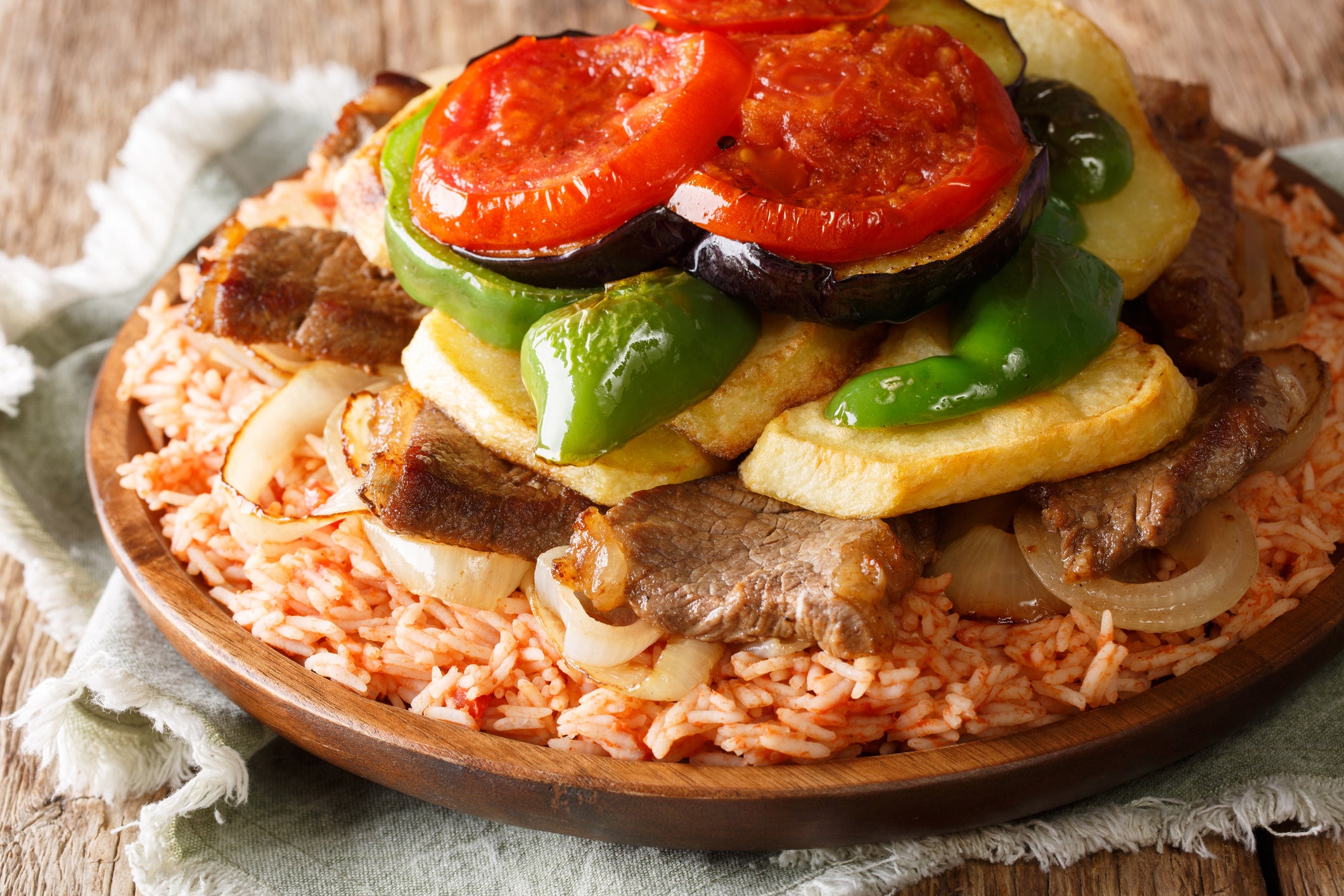
(Getty Images/iStockphoto)
Maqluba is popular in Middle Eastern countries and consists of fried vegetables, meat and rice cooked together in a pot which is then flipped upside down to serve as a large savoury cake.
Tufahije
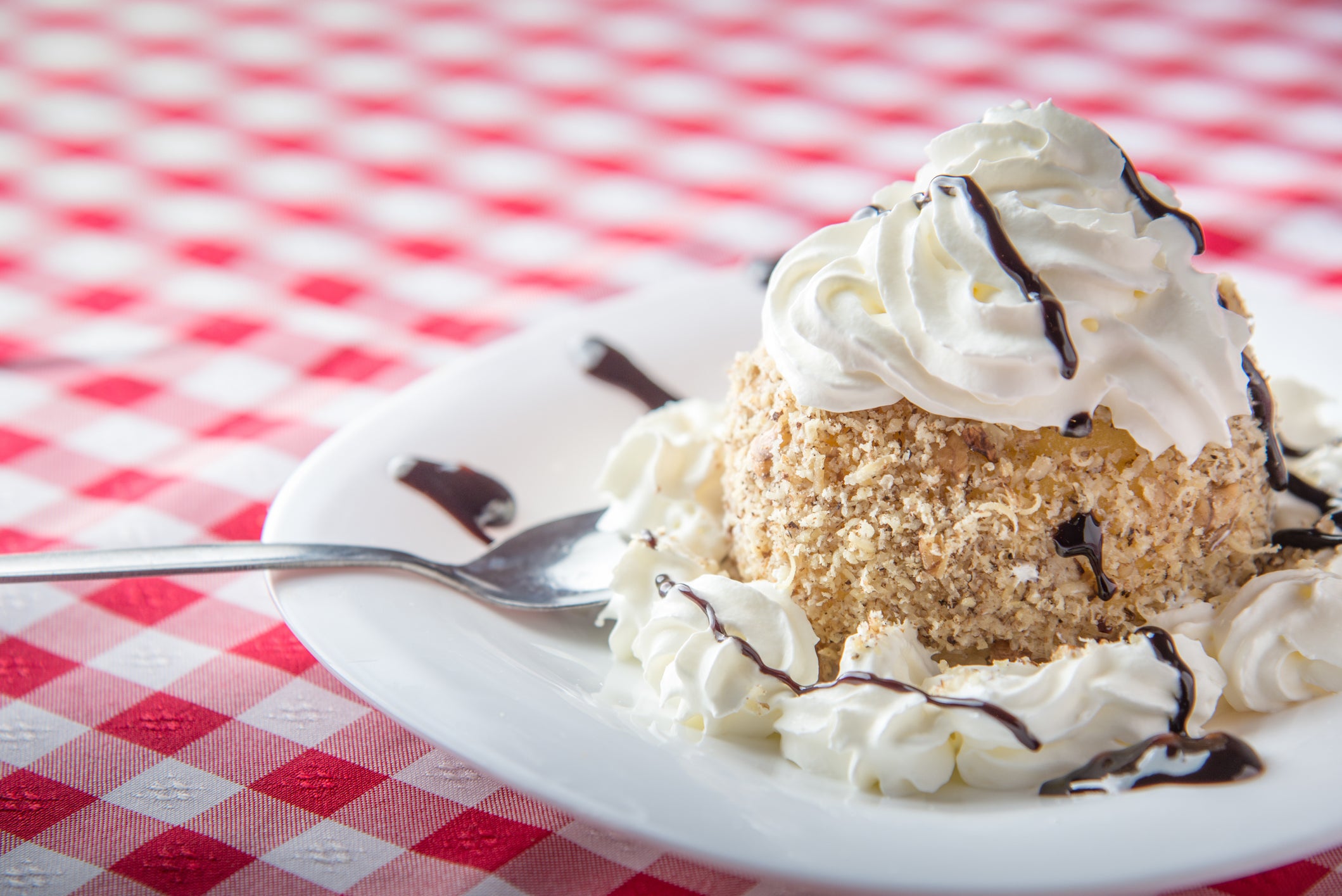
Tufahije is a popular Bosnian dessert made by poaching apples in sugar water, filling them with nuts and topping with whipped ice cream or crème fraiche. It is usually served in a large glass.
SheerKhurma
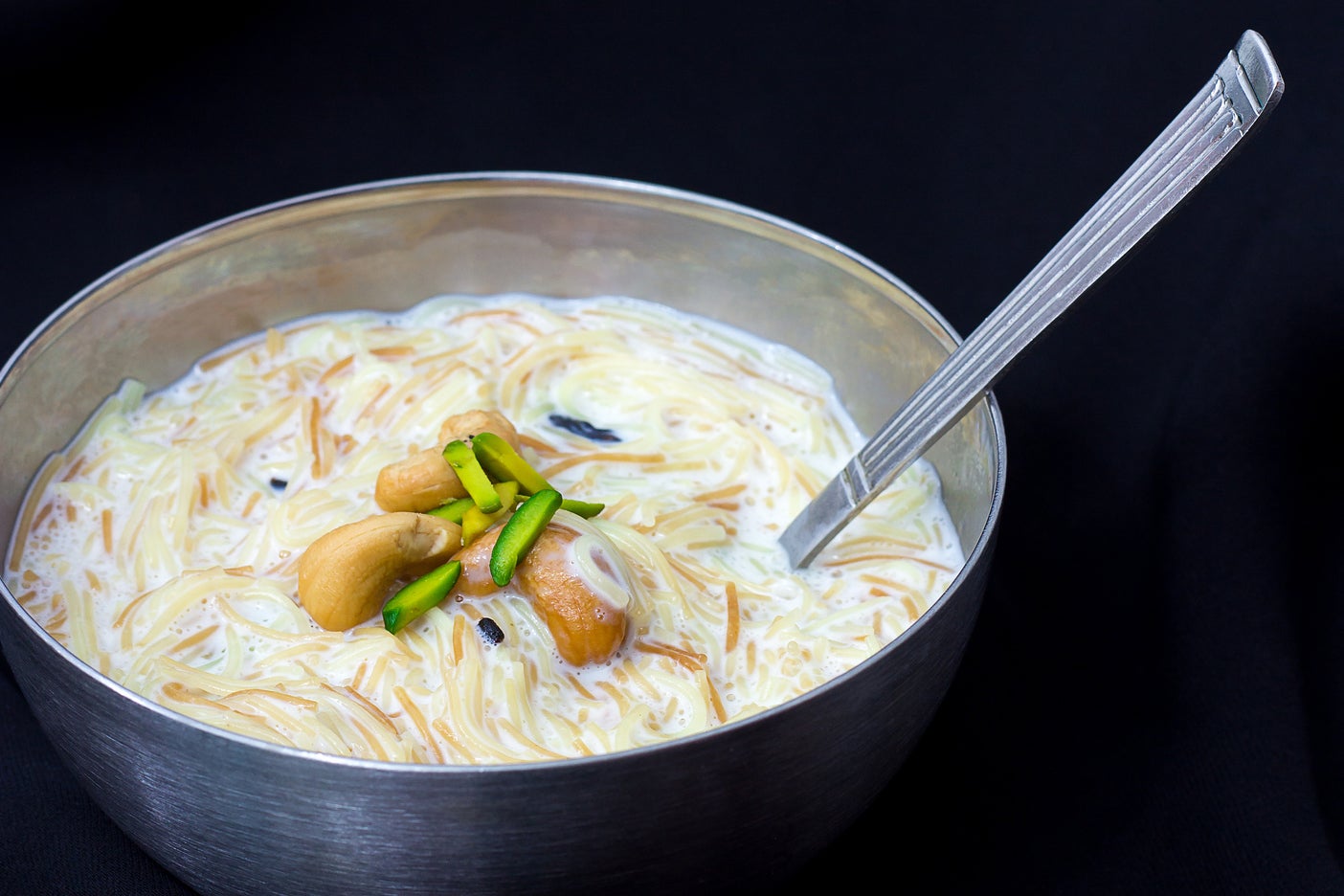
This Mughlai dessert, sometimes called “milk with dates”, is prepared using vermicelli, milk, sugar, dates and dried fruits.
The dish is made by cooking vermicelli in milk till it softens and the mixture thickens. Dried fruit is then added on top.
Maamoul
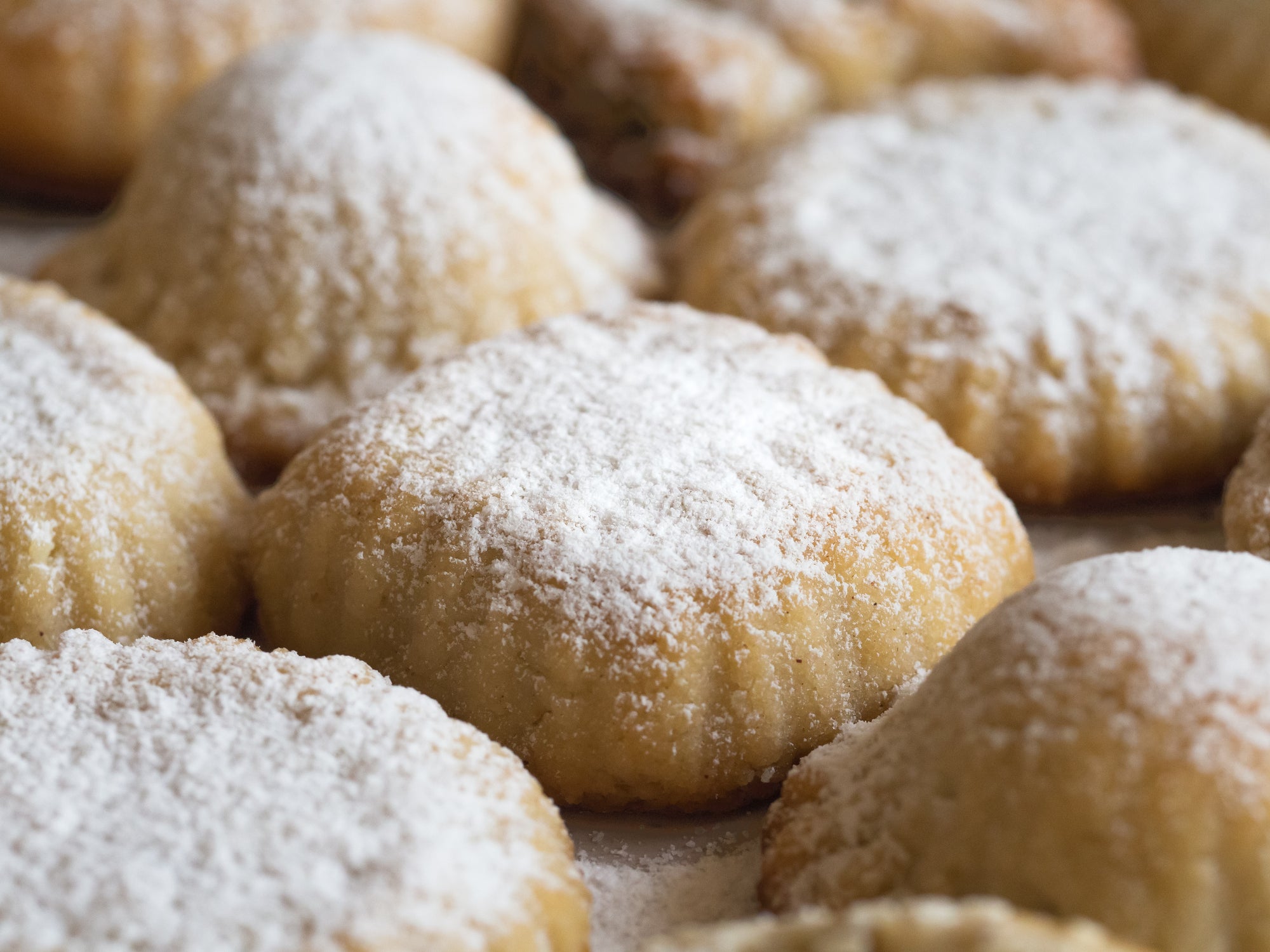
These buttery, shortbread pastries are popular in Lebanon. They are usually filled with walnuts, pistachios, sugar and rose water.
Join our commenting forum
Join thought-provoking conversations, follow other Independent readers and see their replies
Comments